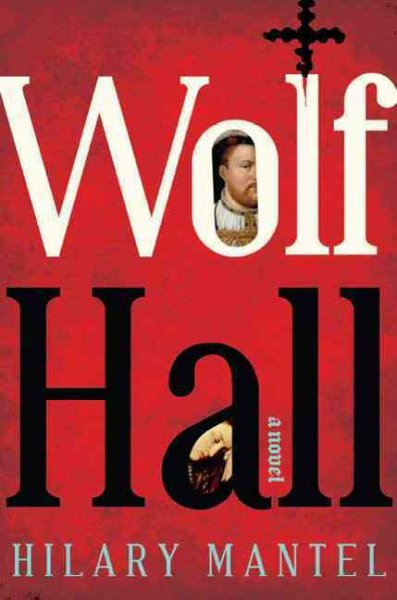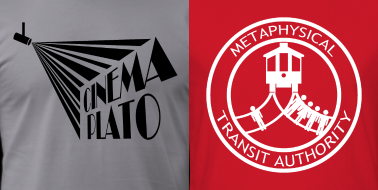Tis the season for finding gifts, and how could you possibly do better than books? Seriously, when I was a little kid, the tooth fairy left money and YA fiction in our beds. It’s hard for me to cull from my list of favorites, so these seven books (plus one bonus recommendation) are all culled from things I read for the first time in 2012.
Oh, and don’t forget that when you buy books or anything on Amazon through my links, I get a small cut that I turn into more book purchases and reviews/meditations for you! You don’t need to be buying the item linked, anything you get after clicking my referral link counts.
Well, after a paen to Lewis on Monday, a defense of him on Wednesday, and some awfully good news for him yesterday, I feel obliged to kick off this list with his Reflections on the Psalms. Since I’ve been praying the Liturgy of the Hours, I was casting about for good references on the Psalms. There are better places to go if you want a big scholarly discussion of their history or in-depth analysis of individual psalms, but reading Lewis’s book is like having an intense conversation until the coffee shop closes with a friend who’s spent a long time with these verses.
I’ve mentioned I tend to appreciate Lewis more for his apologetics than his fantasy/scifi, but boy howdy do I love those genres generally and I really loved reading Orson Scott Card’s How to Write Science Fiction and Fantasy this year. I don’t write fiction, but you don’t need to need this book to love it.
I’ve always liked the Peggy Noonan remark that the beauty of a speech is in its logic, and Card does a great job of showing you how he’s thought through or been surprised by the consequences and relationships of the worlds he built. Oh, and Eliezer Yudkowsky has said this book helps him write Harry Potter and the Methods of Rationality. (I’d still like him to write and write faster).
And while we’re talking about writing fantasy that casts a spell on the reader, I have to recommend Catherynne Valente’s The Orphan’s Tales: In the Night Garden and it’s sequel The Orphan’s Tales: In the Cities of Coin and Spice. Reading these books made me feel a lot of kinship with the king in Scheherazade – I was alternately enraptured and enraged.
But Scheherazade’s spouse had it easy; she started a new tale every night and stopped at the cliffhanger, so he couldn’t kill her the next day. Then she’d finish the story and start a new one the next night. In Valente’s two books, the characters in the stories that our girl is telling in the frame tale start telling stories of their own, or are told them by the people they meet. And the stories are so good, that you can’t decide which level down you need catharsis on most.
Not to mention that, a lot of the time, a nested story will cast new light on one of the stories still spinning out, sometimes when the antagonist gets a chance to talk, and sometimes when one narrative just glances off the other, but some small fact is explained (oh that’s where the three mute maidens stole the tongue they shared!).
If you’re looking for gifts for younger readers, try Valente’s The Girl Who Circumnavigated Fairyland in a Ship of Her Own Making and its sequel The Girl Who Fell Beneath Fairyland and Led the Revels There. It’s on a par with The Phantom Tollbooth in surreal beauty.
Like everyone else, apparently, I really liked Hillary Mantel’s Wolf Hall. (I didn’t love Bring Up the Bodies or A Place of Greater Safety quite as much). The length is part of what makes it excellent (and why I didn’t love Bodies); there’s a lot of room for Cromwell to have to work around his king and his culture. Mantel was also the cause of me reading A Man for All Seasons this year, which I juxtaposed with A Place of Greater Safety recently.
Mantel brought me into history through fiction, and Peter Brown caught me with his nonfiction work The Body and Society: Men, Women, and Sexual Renunciation in Early Christianity. It’s a nice reminder about how much work moral theology is, and it’s comforting to see that I’m not the only one who flails around a bit when it comes to all those questions about the realtionship between intellect and embodiment, caritas and eros.
Drew Gilpin Faust’s This Republic of Suffering: Death and the American Civil War is another great book that works through historical problems and makes you think awfully hard about the dignity of the body now. Not quite sure if it counts for this list, since I’d read excerpts before for an epidemiology class, but this year I actually read the whole thing.
My default mode is more puzzle-solving and abstract philosophizing than anything all that spiritual or communal. That’s why I’m really glad I read The Presence of God, Weeds among the Wheat, and The Examen Prayer: Ignatian Wisdom for Our Lives Today. I am not the best at thinking of God-the-Person instead of God-the-truth-proposition, and I found these helpful.
Earlier this year, when I was still working on the truth proposition problem, I was trying to decide what I needed to do to have finished doing due diligence so I could walk away from the question of God and feel intellectually satisfied. For some reason, I decided this meant I needed to read the big Christian novels I’d been so frequently recommended. Which is great, because it meant I finally read The Brothers Karamazov. I kept coming back to ideas and quotations from it for months. (And when that petered out, I think it was a sign I was due for a reread).
P.S. Did you know William Shatner played Alyosha in a film adaptation?!?
Unfortunately, many people are reading these great books on Kindle, which may be convenient, but makes it awfully hard for me to spot what you’re reading and strike up a conversation. So why not use a new signalling mechanism?
You can still buy either of the snazzy philosophy t-shirts my college friends and I designed in our spreadshirt store. And, according to Nick Carr, Google’s autonomous cars might be taking the thought out of thought-experiment when it comes to the trolley problem:
So you’re happily tweeting away as your Google self-driving car crosses a bridge, its speed precisely synced to the 50 m.p.h. limit. A group of frisky schoolchildren is also heading across the bridge, on the pedestrian walkway. Suddenly, there’s a tussle, and three of the kids are pushed into the road, right in your vehicle’s path. Your self-driving car has a fraction of a second to make a choice: Either it swerves off the bridge, possibly killing you, or it runs over the children. What does the Google algorithm tell it to do?
For more Quick Takes, visit Conversion Diary!




















